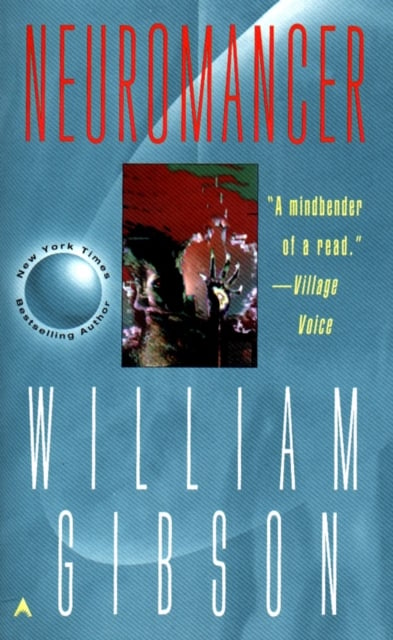Neuromancer
by William Gibson (1984)

2022 reads, 15/20:
“The sky above the port was the color of television, tuned to a dead channel.”
Everyone quotes that opening line, and for good reason – it’s extremely well-written, it evokes this constant mood of despair, and it sets the tone perfectly for the whole rest of the novel. Henry Case, a data thief, gets called upon to do a job for an unknown boss, undergoing surgery to get his ability to upload into cyberspace back after a previous employer crippled him.
“Cyberspace. A consensual hallucination experienced daily by billions of legitimate operators, in every nation, by children being taught mathematical concepts . . . A graphic representation of data abstracted from the banks of every computer in the human system. Unthinkable complexity. Lines of light ranged in the nonspace of the mind, clusters and constellations of data. Like city lights, receding. . .”
Many criticize Gibson’s writing style, though I quite enjoyed it, and don’t think it’s as jarring as others make it out to be. Gibson works in short bursts, quickly switching from one scene to another (which makes sense sometimes, as this is how Case experiences things). But it’s not action-packed all of the time, as there are many atmospheric passages that describe both the real and virtual world that Case finds himself in.
That mood of despair I mentioned is an integral part of the cyberpunk genre. I find that many love to explore the ‘cyber,’ but the ‘punk’ usually gets left behind. Not in this novel – images of the grimy underworld and streets, contrasted with the uncomfortable endlessness of ‘the matrix,’ perfectly capture this dichotomy in cyberpunk.
“Cold steel odor. Ice caressed his spine. Lost, so small amid that dark, hands grown cold, body image fading down corridors of television sky. Voices. Then black fire found the branching tributaries of the nerves, pain beyond anything to which the name pain is given.”
If The Long Way to a Small, Angry Planet was the sci-fi book I wanted, then Neuromancer was the sci-fi book I needed, as it was probably one of my favorites this year. This seminal novel paved the way for other cyberpunk works – highly recommended.
#readingyear2022 #dystopia #favorites #physicallyowned #scifi








